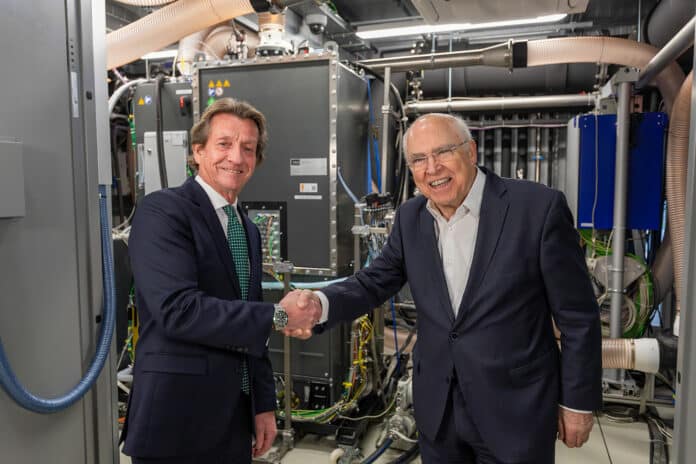TECO 2030, a Norwegian-based clean tech company developing zero-emission technology for the maritime and heavy industry, has reached a significant milestone. The company has successfully injected its fuel cell system with hydrogen and created emission-free hydrogen-electric power.
Two years ago, the company announced its ambitious plans to construct a cutting-edge facility for hydrogen fuel cells. The plant would be a significant milestone in Norway as it would be the country’s first large-scale fuel cell production plant. Additionally, it would serve as a pioneering research and education center.
TECO 2030 partnered with UiT, The Arctic University of Norway – which has a campus in Narvik – to enhance research and education on hydrogen and fuel cells in Norway. The Faculty of Engineering, Science, and Technology at the university would be supporting the future factory with their knowledge, while the center’s testing facilities would provide unique resources for researchers and students.
Last month, the Norwegian startup introduced the FCM400, which is a highly compact and energy-dense system primarily designed for maritime vessels but can also be used for heavy-duty applications. The fuel cell module can deliver up to 400 kW of power, is easily scalable in power increments of 400 kW, and can be utilized in multimegawatt power source applications. The system is a standard and fully customizable fuel cell system that can be used in various applications such as marine main- or auxiliary engines, construction sites, stationary shore power applications, and other energy-intensive applications.
Over the past few months, the company built and installed the FCM400 into the test bench in Graz, Austria, to produce electricity from hydrogen. Recently, the first hydrogen was injected into the fuel cell module, meaning that the breakthrough technology is now officially validated.
As of now, the system will undergo further testing, and TECO 2030 aims to deploy the first system during the first half of 2024. Its technology development partner, AVL in Graz, Austria, will continue manual production of FCM400 systems for the next few units before shifting production to Narvik, Norway, in the first half of 2024. The Narvik site is already working on the manual production of fuel cell stacks and is making significant progress.
The modular 400kW fuel cell system is a cutting-edge solution for clean energy generation. It has several advantages over conventional systems, such as high energy efficiency, inherent safety concept, compact and lightweight design, long-lasting components, and fast dynamic load response.
According to TECO, “operating one FCM400 unit instead of a diesel generator saves our planet from over 9000 tons of CO2 emissions – or consuming over 3.5 million liters of diesel – during 35,000 hours of operations.” This is just the start of their production journey. The clean-tech startup plans to significantly increase its capacity by the end of this decade. Their ultimate goal is to manufacture up to 4,000 units per year by 2030.
“A remarkable accomplishment, our FCM400 system has officially been tested with hydrogen and produced electricity as expected, and the performance data collected proves our expectation of how we have met or outperformed our own expectations,” says Tore Enger, Group CEO, TECO 2030. “The road to a better and more sustainable future is becoming clearer and clearer to us as we reach this enormous milestone in our company’s history,” Enger concludes.
